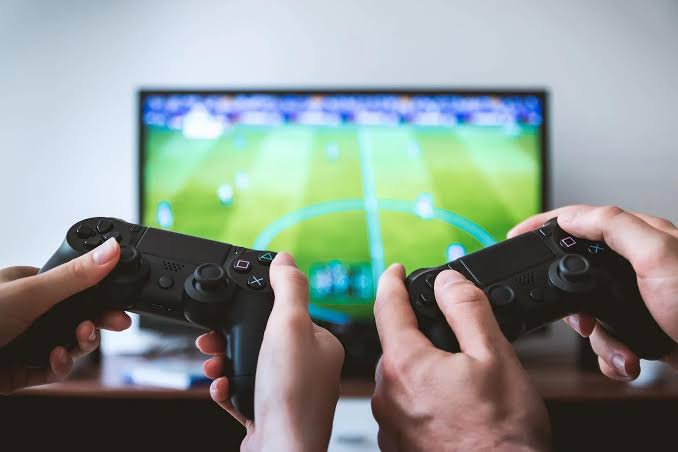Gaming consoles have become cornerstone of modern entertainment revolutionizing how people engage with leisure activities. This extensive exploration delves into various dimensions of gaming consoles. It assesses their impact on entertainment, technology. And social interactions. It also considers influence of gaming on broader cultural and economic landscapes.
Gaming consoles from their early incarnations to sophisticated systems of today, have consistently pushed boundaries of what is possible in interactive entertainment. Early models like Atari 2600 and Nintendo Entertainment System (NES) laid the foundation for what would become a multi-billion-dollar industry. Modern consoles such as PlayStation 5. Xbox Series X. Nintendo Switch, offer high-definition graphics immersive gameplay. They also provide a plethora of features that extend far beyond traditional gaming.
The evolution of gaming consoles has been marked by significant technological advancements. Initially, consoles were limited to 8-bit graphics and simple gameplay mechanics. Today’s consoles feature powerful processors and advanced graphics cards. They possess high-speed internet connectivity. This enables experiences that were once the stuff of science fiction.
1. Graphics and Performance: Modern consoles are equipped with hardware capable of delivering 4K resolution and even 8K in some cases. The shift from standard definition to high definition and ultra-high definition has drastically improved visual fidelity. This improvement extends to frame rates and load times, with technologies such as solid-state drives (SSDs) reducing wait times and enhancing overall gaming experiences.
2. Virtual Reality (VR) and Augmented Reality (AR): VR and AR have added new dimensions to gaming. Consoles like PlayStation VR have made virtual reality accessible to a broad audience, while AR games have incorporated real-world elements into the gaming experience. These technologies create more immersive and interactive experiences, blending digital and physical realities.
3. Connectivity and Online Features: Modern consoles come with robust online capabilities. Players can connect to the internet to download games, updates, and patches. Multiplayer features allow gamers to connect and compete with others globally. Additionally, digital storefronts have transformed how games are purchased and accessed, shifting away from physical media.
Impact on Entertainment and Leisure
Gaming consoles have transformed entertainment and leisure in several ways. Their influence extends across various aspects of life, from personal enjoyment to social interactions.
1. Interactive Entertainment: Consoles have redefined what it means to be entertained. Unlike passive forms of media, gaming is interactive, requiring players to make decisions and engage actively with the content. This interactivity can enhance cognitive skills, improve hand-eye coordination, and offer a sense of accomplishment and progression.
2. Social Interaction: Modern gaming consoles have become social hubs. Online multiplayer games, social platforms, and voice chat features allow players to interact with friends and strangers worldwide. This connectivity fosters community building, teamwork, and shared experiences, creating a sense of belonging and camaraderie.
3. Content Diversity: The variety of games available on modern consoles caters to a wide range of interests and demographics. From action-packed shooters to narrative-driven role-playing games (RPGs) and educational titles, there is something for everyone. This diversity has broadened the appeal of gaming, attracting players from different age groups and backgrounds.
Economic Impact
The gaming console industry has had a profound economic impact. It has created jobs, generated significant revenue, and influenced related sectors.
1. Industry Growth: The gaming industry, driven by console sales, game development, and ancillary services, has grown exponentially. According to market reports, the gaming industry is one of the fastest-growing entertainment sectors, with revenue surpassing that of traditional media such as film and music.
2. Job Creation: The rise of gaming consoles has led to job creation in various fields, including game development, hardware manufacturing, and digital marketing. Companies like Sony, Microsoft, and Nintendo employ thousands of people globally, contributing to economic growth.
3. Ancillary Markets: The success of gaming consoles has spurred the growth of ancillary markets, including merchandise, gaming accessories, and streaming services. These markets benefit from the popularity of gaming consoles and contribute to the overall economic ecosystem.
Cultural Impact
Gaming consoles have left an indelible mark on popular culture. They influence fashion, entertainment, and even language.
1. Cultural Phenomena: Iconic characters and franchises from gaming, such as Mario, Link, and Master Chief, have become cultural icons. These characters appear in various media, including movies, television shows, and merchandise, bridging the gap between gaming and broader cultural contexts.
2. Influence on Media: Gaming has influenced other forms of media, with game design principles being incorporated into films, television, and even literature. The narrative techniques and interactive elements seen in games are increasingly being adopted by other media creators.
3. Language and Behavior: Gaming culture has introduced new terminology and behaviors into the mainstream. Phrases like "level up," "achievement unlocked," and "boss battle" have entered everyday language, reflecting the influence of gaming on communication and cultural norms.
Challenges and Criticisms
Despite their benefits, gaming consoles face criticism and challenges. Addressing these issues is essential for ensuring that the industry continues to thrive while mitigating potential negative impacts.
1. Health Concerns: Prolonged gaming can lead to physical and mental health issues, such as eye strain, poor posture, and gaming addiction. It is important for players to practice moderation and take breaks to mitigate these risks.
2. Cost and Accessibility: The high cost of modern gaming consoles and games can be a barrier for some individuals. Ensuring that gaming remains accessible and affordable is crucial for fostering inclusivity in the gaming community.
3. Privacy and Security: As gaming consoles become more connected, issues related to privacy and security have arisen. Protecting user data and ensuring safe online interactions are important considerations for both manufacturers and players.
Conclusion
Gaming consoles have undeniably reshaped modern entertainment and leisure. Their technological advancements, impact on social interactions, economic contributions, and cultural significance illustrate their importance in contemporary society. While challenges and criticisms exist, the ongoing evolution of gaming consoles promises continued innovation and influence, ensuring that they remain a central element of modern entertainment.
